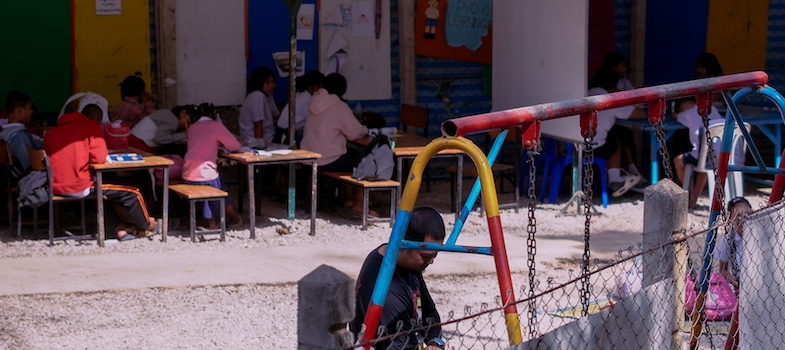1.1 Welcome to the Course
Watch the video to find out about the people and organisations that have co-designed this course.
In the video, you will meet the educators: Tejendra Pherali, Sam San, Naing Win, Elaine Chase, Greg Tyrosvoutis, Eileen Kennedy, Min Layi Chan, Gabi Witthaus, Wirachan Charoensukaran, Diana Laurillard, and Sa Phyo Arkar Myo Hlain. You can find a complete list of our co-design partners in the downloads section at the bottom of this step - you can see that a lot of people have contributed ideas or videos and learning materials to design this course together.
Globally, over 117 million people are now forcibly displaced from their homes, of which, 47 million are school-aged children, according to the UNHCR Refugee Data Finder. Nearly one-third of children living outside their country of birth are refugees, and the majority of them come from countries affected by violent conflicts. The majority of these children will spend their entire childhoods away from home. Refugee and displaced children and young people have limited access to basic services like education and many of them are unable to attend school. Those who do tend to experience poor quality learning spaces with limited educational resources. They also face other issues such as the lack of opportunity to learn in their mother tongue, an unsuitable curriculum, overcrowded classrooms. Teachers in these contexts tend to be under-resourced and inadequately supported.
Studies show that the teacher is the most important factor affecting the quality of education, particularly in educational environments which are affected by ongoing violent conflicts, mass displacement and protracted crisis. We created this course to support such teachers who are committed to this difficult but rewarding job. We hope the course will provide a pathway to recognition of your professionalism as a teacher and help you to undertake further professional development opportunities.
Our educator team includes educators and researchers from UCL who have developed innovative ways of supporting learning in conflict-affected contexts, and members of the Inclusive Education Foundation (InEd), who provide educational support to migrant and refugee learners and teachers on the Thai Myanmar border. The UCL team specialises in digital methods for quality learning, and they aim especially to support teachers on a large scale who are working in challenging contexts across the world . InEd staff are familiar with the many challenges faced by learners and teachers in settings of conflict and displacement, and use digital methods to reach teachers with limited professional development opportunities and students who are at risk of educational exclusion. Together we have worked to create content and approaches that are relevant to teachers and other education-related professionals in contexts of conflict and mass displacement.
The videos in this course feature the experiences of teachers and educators from different backgrounds, most of whom live and work on the Thai Myanmar border. We also include videos from teachers in Lebanon, to show a different context where teachers are dealing with similar issues. Their stories illustrate some of the shared techniques which can be adapted for use in other settings to create positive change through education.
In the next step, we will tell you more about our co-design approach and the different ways you can use this course. We aim to make this a social and collaborative learning experience where we all learn from each other. So throughout this course, we will be inviting you to share your ideas, educational experiences and practices with us. Let’s start now
Over to you
In the forum below, please introduce yourself and think back to when you were a learner rather than a teacher. What was the best teaching and learning environment you experienced? What made it good for you?
